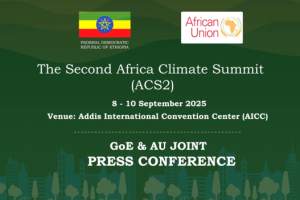
For a country in which the main stay of the economy is agriculture, land is a valuable asset that needs efficient utilization. With the combination of human resource, capital and technology land can be a source of wealth creation.
In addition to use value, land has transaction value, which can pull investment for agricultural development. If the land ownership is clearly defined and farmers have ownership rights, they can use it for collateral for getting loan from banks.
Regarding land utilization, there is land policy based on the types of land and where it is located. But for the effective implementation further study is essential and in line with the study, identifying land in accordance with the suitability for agriculture, mining, for urban development and for forest is vital.
Currently land is increasingly becoming a scarce resource and the competition for land among different uses is becoming acute and is most apparent on the peri-urban fringe, where the continuing pressures of urban expansion compete with agricultural enterprises, and with recreational demands.
The rapidly growing population also forced people to poses land in the inhabited areas for settlement. Such situations frequently lead to rapid increases in the economic value of land and conflicts related to this competition become more frequent and more complex, quickly becoming an important political issue. The apparent and growing global warming and climate change also forced people to find better land viable for crop production with sufficient water availability.
Dr Yitebitu Moges is working in the Ministry of Environment, Forest and Climate Change land Degradation in the department of Emission Reduction as program coordinator.
According to him, even though the nation prepared legal frames regarding land utilization, it has no working land policy and plan because of this, land is not economically utilized. In addition, such a situation hampers effective forest development. He further said that, the absence of clear policy and lack of road map for land management hampers systematic land utilization.
The urban land development and management head at the Ministry of Urban Development Bizualem Admassu on his part said that, the absence of land utilization plan forces urban centers to be expanded arbitrarily in line with the stretch of road infrastructure hence, to address the problem urban centers should be developed based on viable policy and instruction.
Dr Tesfaye Shimbir is working at the Ethiopian Agricultural Research Institute as a Director of Land and Water resource Department. As to him, due to lack of policy and functioning plan farm lands are utilized for urban development, land that can be utilized for forest development utilized for agriculture and mining lands used for other purposes as the result, resource is being misused hence planning and implementing new land policy should be an urgent task.
He further said that, sorting out lands based on the ecosystem and climate condition is helpful for identifying places which are suitable for urban development, mining, tourism and for other purposes.
As to Tesfaye, currently the implementation of land usage in each region lacks coherence and uniformity this intern has its own unwanted consequence. The non- availability of functioning policy disrupts the ecosystem and the environment in which damage animals and plant life. It is also responsible for the occurrence of climate change drought, land degradation and the reduction of agricultural productivity.
According the Ministry of Environment, Forest and Climate Change, the change towards urbanization is inevitable as the country industrializes and urban centers become hubs for factories, trade, financial and other social services and center of innovation.
According the Ministry of Environment, Forest and Climate Change, the change towards urbanization is inevitable as the country industrializes and urban centers become hubs for factories, trade, financial and other social services and center of innovation.
Bilillign Deresse works at Hawassa University as geography instructor as to him, land and water pollution currently observed in every areas directly or indirectly related with the absence of modern land management system. Industries drain their waste to water bodies. Farmers lose their lands due to the unplanned expansion of urban centers exacerbated by illegal land invasion further complicating the matter.
The arbitrary usage of land antagonize fair distribution of wealth as the result, income between the haves and the have not became further widen and bring social tension thus the urgent implementation of viable policy is essential.
The Ethiopian Constitution stipulates that land is owned by the people, giving the government an important role in land management and administration. In urban areas, the local governments act as the sole suppliers of land through two means, direct allocation and auction. Until 2011, allocation through direct negotiations also existed.
According to the World Bank recent study, despite the recent introduced auctions in all cities clearly indicated high unmet demand for residential commercial, industrial land and land management practices result in insufficiently serviced land for people, businesses and public uses and shortages further exacerbated by rapid urban growth.
Land supply mechanisms which rely heavily on allocation have not been able to meet demand. On other cases, cities are expanding outward faster than the population is growing.
This has the potential to further increase the cost of infrastructure and service delivery and it is also driving informal slum areas particularly on the urban suburbs.
According the Ministry of Environment, Forest and Climate Change, the change towards urbanization is inevitable as the country industrializes and urban centers become hubs for factories, trade, financial and other social services and center of innovation.
Outward expansion of cities is driven by lack of market pricing as the result substandard residential houses are flourishing and uneconomical utilization of land became rampant. The expansion of slum areas in addition to bringing negative economic consequence, it brings unacceptable environmental devastation and social tension. Residents in these areas let their dry and liquid waste arbitrarily, which made waste management work very complex and consequently make the place the hot bed of epidemic diseases.
Therefore, to manage the problem the local governments will be forced to allocate additional money for curbing the epidemic. The burning of dry waste also emits hazardous chemicals to the environment aggravating climate change and global warming.
The draining of solid and liquid waste to water bodies in the surrounding areas affects water sanitation and water animals. Consequently, the ecosystems disturbed and their economic value is degraded. In the case of Addis Ababa historically most settlements took place in unplanned manner. Most small industries, garages, hospitals and latrines established in the nearby river basins drain their waste towards the rivers polluting the environment. These indicate how unplanned and inefficient utilization of land brings negative consequence economically, socially and environmentally hence identifying areas to the specific objectives such as for agriculture, residence, real estate development parks, social services and industries and proper allocation must be implemented. The inefficient urban land constraints hamper economic development and investment.
As mentioned, in the earlier times, residential houses had been built in unplanned manner river banks and streams. That time most houses were built with no sewerage and toilet services and both dry and liquid wastes find their way to the rivers which poses environmental pollution. The houses were below standard and with only one floor and in vast areas people were settled sparsely which clearly shows the uneconomical usage of lands. The settlement also aggravated the emerging of shanty places that are not suitable for residence.
Several African countries including Tanzania, Uganda, Kenya, Zambia and Mozambique have a public land ownership regime have good record in properly managing lands. In fact, in these countries the institutions established for land management in the colonial era played pivotal role. The institutions have strong capacity not only enacting laws regarding land usage but also have strong law enforcing bodies which do not let loop holes for corruption. As the result they registered steady economic growth and stability.
In the case of South Africa, the situation is different. The government has no role in land allocation. Market forces govern Land administration through balancing supply and demand. The law enforcement bodies in that country have strong capacity in enforcing contracts between parties among actors in transacting lands and this made the country the most preferable country for investment in Africa.
As mentioned above land is a precious economic resource which can serve as a base for wealth creation but unless it is used economically in a planned manner, it might be abused and aggravate corruption. Hence, for the proper land management and usage the pertinent institutions must work diligently.
BY ABEBE WOLDE GIORGIS
THE ETHIOPIAN HERALD TUESDAY 18 MARCH 2025




